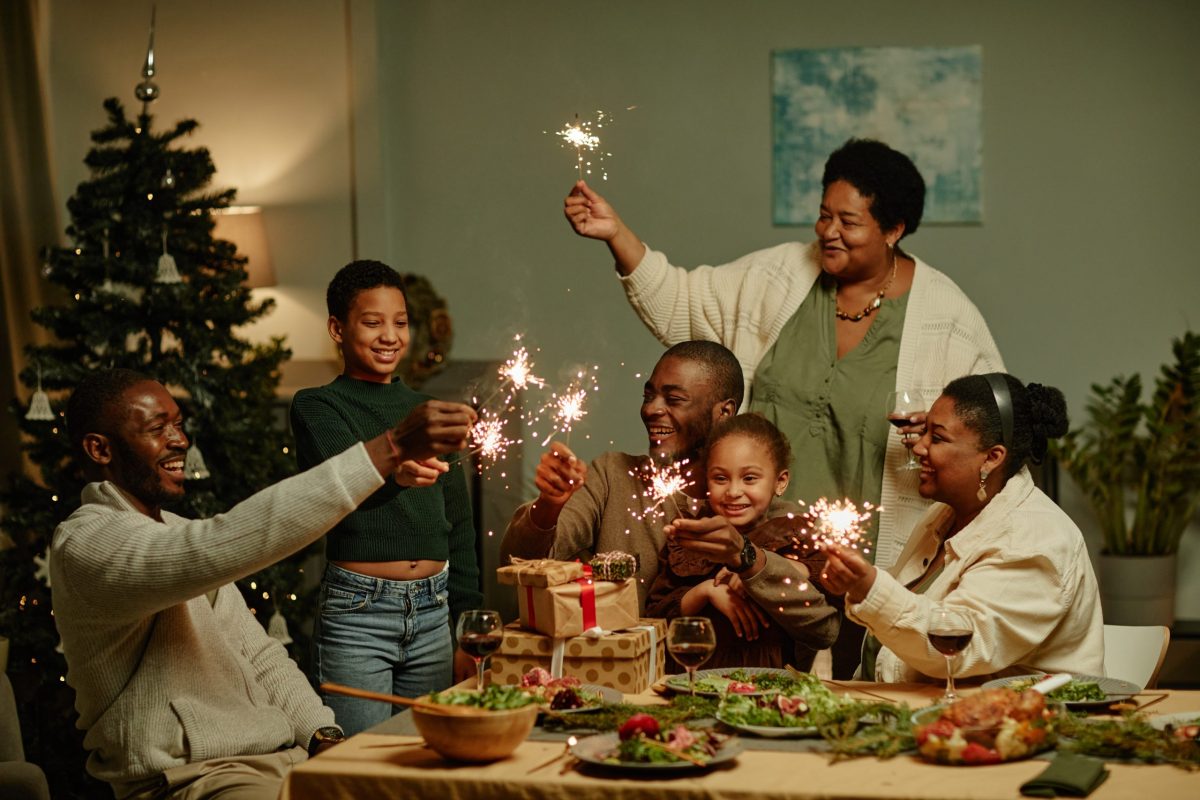Every year in December, we are bombarded with holiday commercials, dazzling sales, and social media posts featuring carefully wrapped presents, do-it-yourself Christmas projects, and beautifully decorated trees. Far from its beginnings as a celebration of faith, family, and community, Christmas has come to be associated with consumerism. The question of whether Christmas has lost its soul in our communities and, if so, how to recover it is one that Black people in particular must consider.
Black families have traditionally celebrated Christmas with more than simply gift-giving. It has been a time of joy and resiliency for the whole community, rooted on customs that have been passed down through the years. Even with limited resources and structural oppression, Black families have managed to make the season meaningful. Gospel-infused church services and songs like “This Christmas” by Donny Hathaway became cultural staples, serving as a reminder of the closer ties between the holiday and our common struggles and victories.
But consumerism seems to be overshadowing its spiritual core more and more these days. Due to capitalism’s pervasiveness during the holiday season, many Black families are left pursuing goals that might not be realistic or satisfying. The true purpose of the season is frequently overshadowed by the temptation to provide kids with the newest technology, share the most envy-inspiring family images, and produce Instagram-worthy experiences.
This is not to argue that love expressed through material means is always wrong. I personally adore giving gifts. Giving gifts has always been a method to express gratitude and concern. We run the risk of losing sight of Christmas as a time to celebrate faith, family, and togetherness, though, when the celebration starts to focus more on what’s beneath the tree than who is around it.
The essence of Christmas for Black people is closely linked to our religious customs. However, in certain places, even church attendance appears to decline around the holidays. Once essential to the holiday experience, midnight Mass and Christmas Day services are now in competition with brunch bookings and post-Christmas shopping excursions. Is our spiritual anchor eroding as a result of this change? And what does it signify for a people whose faith has frequently kept them alive?
The elimination of Christmas’s community elements is equally worrisome. The fundamental theme of the holiday has been spreading kindness and love outside of our homes. These activities, whether they be toy drives, feeding the homeless, or just getting together with neighbors for caroling, serve as a reminder of our common humanity. However, as individualism grows, these customs are seen less as essential and more as choice.
We must consciously return our attention to the most important things if we are to restore the essence of Christmas in Black communities. This entails going over and reviving our cultural customs. As my mother and grandmother prepared Christmas supper and told me elder stories, I recall being in the kitchen with them. After opening presents and disappearing to play their games, my children come back to fix their plates. And I allowed it to occur. Because, like many others, I lost sight of the essence of the holidays in the midst of the world’s chaos. However, one approach to keep the joy alive is for kids to understand the origins of favorite holiday songs and traditions. Giving gifts to Black-owned companies might also help us feel more connected to our purchasing patterns and have a sense of purpose.
We also need to rethink the way we give. We can provide experiences, time, and deeds of service in place of only material things. Making neighborhood potlucks, volunteering as a family, or visiting elderly neighbors can all result in enduring experiences that are far more meaningful than anything you could buy. We must strike a balance between giving and receiving (my children are rolling their eyes as they read this).
No, Christmas is in danger, but it hasn’t completely lost its essence. Despite social constraints, Black people have always managed to find meaning and purpose in their lives. Let’s make a renewed commitment to enjoying this holiday season in ways that strengthen our communities, honor our faith, and support our families. By doing this, we can make sure that Christmas continues to be a heartfelt celebration of our values and identity.
Note: Every piece of content is rigorously reviewed by our team of experienced writers and editors to ensure its accuracy. Our writers use credible sources and adhere to strict fact-checking protocols to verify all claims and data before publication. If an error is identified, we promptly correct it and strive for transparency in all updates, feel free to reach out to us via email. We appreciate your trust and support!



